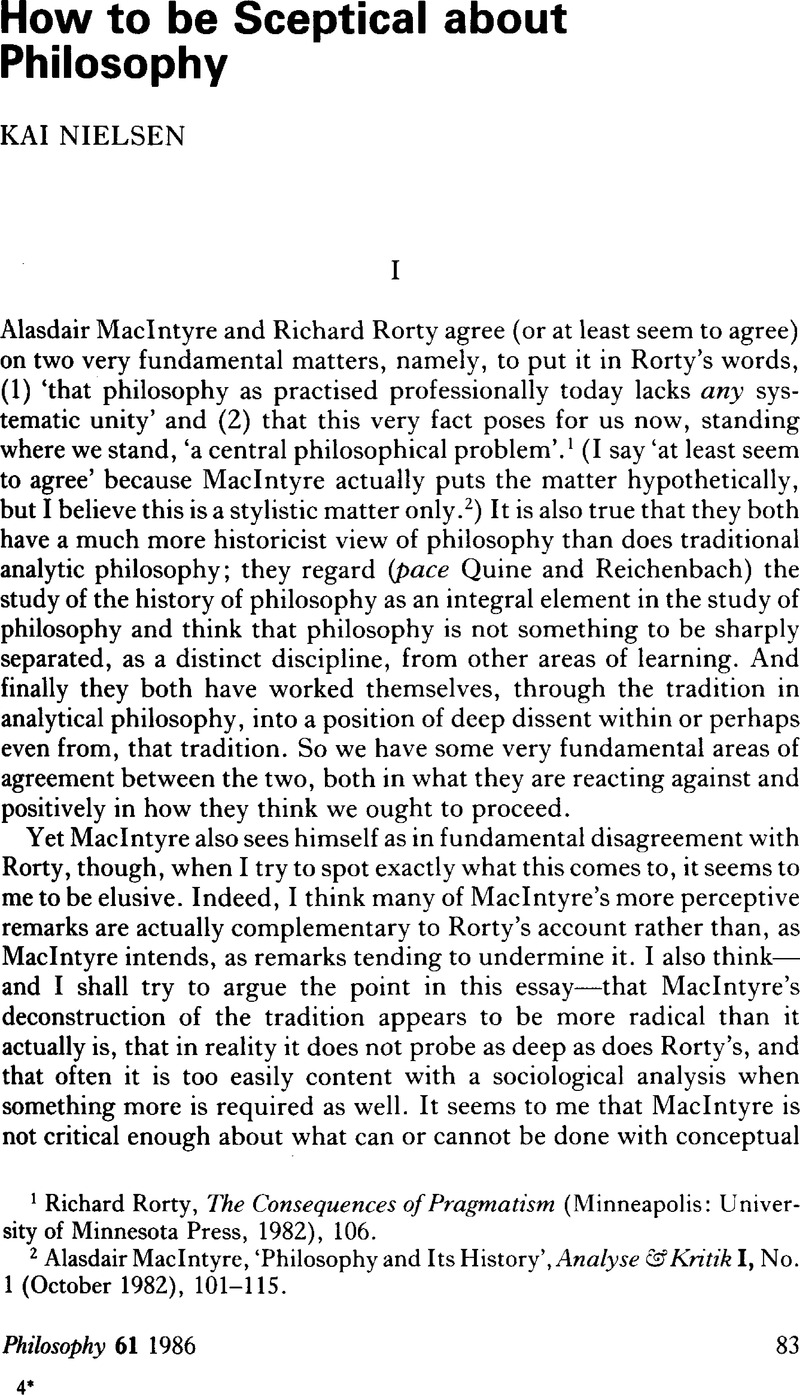Published online by Cambridge University Press: 30 January 2009

1 Richard, Rorty, The Consequences of Pragmatism (Minneapolis: University of Minnesota Press, 1982), 106.Google Scholar
2 Alasdair, Maclntyre, ‘Philosophy and Its History’, Analyse & Kritik I, No. 1 (10 1982), 101–115.Google Scholar
3 Ibid.,111.
4 Ibid., 109. The paper referred to is ‘Philosophy in America’, reprinted in The Consequences of Pragmatism, 211–230.
5 Ibid.
6 Ian, Hacking, ‘Is the End in Sight for Epistemology?’, Journal of Philosophy LXXVII, No. 10 (10 1980).Google Scholar
7 Actually I think Maclntyre's claims here should be questioned, though I shall not pursue it here. What I am most in sympathy with is his claim that Rorty's account is too fixed on philosophy as a distinct discipline with an internal history. Rorty, as Isaac Levi and Bernard Williams have both f differently argued, does not find an adequate place for science in his account. It is far too much seen as just one language-game among others. See Isaac, Levi, ‘Escape from Boredom: Edification According to Rorty’, Canadian Journal of Philosophy XI, No. 4 (12 1981), 589–601,Google Scholar and Bernard, Williams, ‘Auto-da-Fé’, New York Review of Books XXX, No. 7 (28 04 1983), 33–37.Google Scholar
8 Rorty, The Consequences of Pragmatism, 46.
9 Maclntyre, op. cit., 104.
10 Ibid.
11 Ibid., 105.
12 Ibid.
13 Rorty, The Consequencess of Pragmatism, 211–230.
14 Maclntyre, op. cit., 105.
15 Ibid., 105–106.
16 Ibid., 111–112.
17 Ibid., 108.
18 Ibid., 110.
19 Ibid.
20 Rorty, The Consequences of Pragmatism, xv.